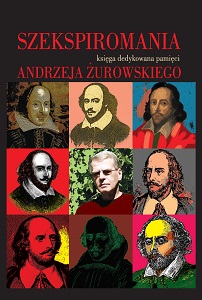„Z ciebie pewnie muzyk całą gębą…”
"Then should you be nothing but musical..."
Author(s): Piotr Kamiński
Subject(s): Theatre, Dance, Performing Arts, Cultural history, Theoretical Linguistics, Applied Linguistics, Studies of Literature, Philology, Theory of Literature, British Literature
Published by: Wydawnictwa Uniwersytetu Warszawskiego
Keywords: Shakespeare; music in theatre; Shakespeare-themed operas; Giuseppe Verdi
Summary/Abstract: Greek mythology and Shakespeare are European culture’s two inexhaustible treasure houses. Although myth obviously dwarfs all other sources in its impact, the very fact that the output of a single poet can be mentioned in a single breath with the collective work of generations is a testament to Shakespeare’s influence on European musicians. Music pervaded every aspect of theatrical production in Shakespeare’s day, and we may only regret that Shakespeare never collaborated with the greatest composers of his time. The 17th-century musical embellishments of Shakespeare’s plays relied on adaptations instead of his original works, and the 18th century was very much a blank page: Shakespeare’s great music career began in the 19th century and continues to this day. The breakthrough came in 1827 with the premiere of "The Midsummer Night’s Dream Overture" by the 17-year-old Mendelssohn, and the visit of the Kemble company in Paris, which sparked a Shakespeare craze in a generation of French artists. Shakespeare themed operas continue to be written, and three masterpieces by Giuseppe Verdi ("Macbeth", "Otello" and "Falstaff") still vie for popularity with Shakespeare’s originals. Verdi’s success remains unmatched by other Shakespeare-themed operas, but there have been some excellent orchestral scores written for the theatre ("The Tempest by Sibelius", 1925) or for ballet (Prokofiev’s "Romeo and Juliet", 1935).
Book: Szekspiromania. Księga dedykowana pamięci Andrzeja Żurowskiego
- Page Range: 438-450
- Page Count: 13
- Publication Year: 2013
- Language: English, Polish
- Content File-PDF

